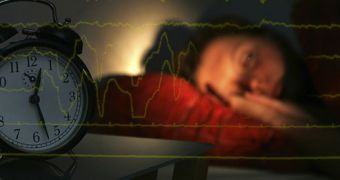A team of researchers working with the Mayo Clinic in Minnesota and Florida now claim that a whopping 80% of the men suffering with a condition known as REM sleep behavior disorder eventually develop dementia.
Thus, it appears that behaviors such as acting out dreams by kicking, walking or talking while sleeping are an indicator of an increased risk of developing so-called dementia with Lewy bodies (i.e. the second most common form of dementia that affects the elderly).
For those unaware, REM sleep is that phase of an individual's normal sleeping pattern when the highly vivid dreams occur.
During this sleeping phase, the individual's muscles are supposed to enter a state of paralysis which prevents them from following up on what is happening inside the person's brain.
As specialists explain, the muscles of those suffering with REM sleep behavior disorder escape being naturally paralyzed, hence their being able to actively respond to said vivid dreams.
“While it is, of course, true that not everyone who has this sleep disorder develops dementia with Lewy bodies, as many as 75 to 80 percent of men with dementia with Lewy bodies in our Mayo database did experience REM sleep behavior disorder.”
“So it is a very powerful marker for the disease,” argues lead investigator Melissa Murray, Ph.D., a neuroscientist currently working with the Mayo Clinic in Florida.
Up until now, it was a common held belief that fluctuating cognition and/or hallucinations were a fairly reliable indicator of a person's risk of developing dementia with Lewy bodies when in their later years, EurekAlert says.
However, it now appears that the dementia-risks are five times greater in the case of those affected by REM sleep behavior disorder.
“Screening for the sleep disorder in a patient with dementia could help clinicians diagnose either dementia with Lewy bodies or Alzheimer's disease. It can sometimes be very difficult to tell the difference between these two dementias, especially in the early stages, but we have found that only 2 to 3 percent of patients with Alzheimer's disease have a history of this sleep disorder,” specialist Melissa Murray wished to emphasize.

 14 DAY TRIAL //
14 DAY TRIAL //